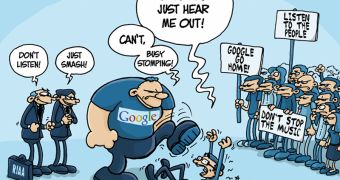A lot of people have been using browser extensions, desktop apps or websites to "convert" YouTube videos into MP3s or just to grab the video itself to be played back on a device with no internet connection or at leisure.
A lot, in this case, means tens of millions of people, for the generation that grew up on YouTube as their source of music, it's the best and in many cases only way they know to get the music in the videos, in the rare occasions they actually need the file and can simply listen to the song on YouTube.
The fact that music Lady Gaga and Justin Bieber music videos get billions of views on YouTube isn't due to their (unquestionable) cinematic qualities, it's because people listen to the video the same way us old timers listen to a MP3 in Winamp.
And, just like us old timers occasionally needed to burn that MP3 onto a CD, for example to play it in the car or on the home stereo, kids need to grab the MP3 from the videos from time to time.
To the irk of record labels, it's perfectly legal to burn a legally-owned MP3 onto a CD and the other way around. The same should apply to YouTube videos, but there is one slight difference.
For one, you pay for the MP3s, well assuming that you do anyway, but you don't pay for YouTube, which is why it may seem that the two issues aren't comparable. You do get the stream to your computer, phone and tablet legally though and that's what matters.
Under most current laws, viewers are allowed to make a copy of any program they watch on TV or hear on radio. That's why DVRs are legal. The same should apply to YouTube. Therefore, it is not illegal to make a copy of a YouTube video you watch or to extract the audio portion.
That's what the founder of YouTube-MP3.org, the biggest site offering the service hinted at in its name, is saying. YouTube-MP3 was contacted by Google a short while ago and asked to stop converting videos to MP3s. Before the site could answer, its access to the YouTube API got cut off.
But the site's owner, the German Philip Matesanz, is fighting back. He got in touch with two German lawyers to get their take on this. Both agreed that Google's case was flimsy at best. But, in the end, it may not matter, Matesanz can't have the resources to go after YouTube, especially in Germany where music videos are blocked altogether due to a dispute between Google and the local music licensing groups.

 14 DAY TRIAL //
14 DAY TRIAL //